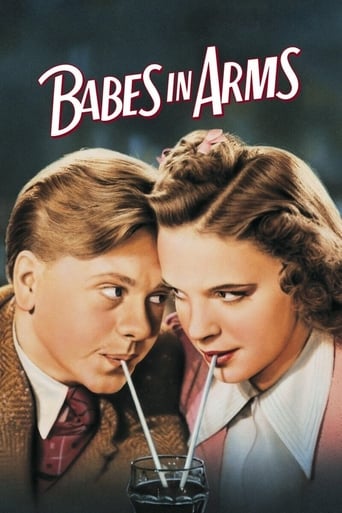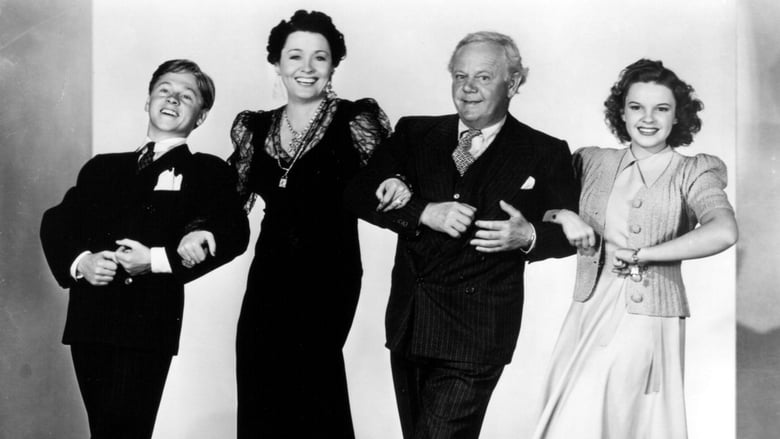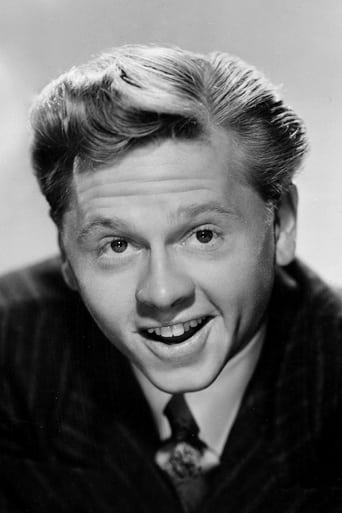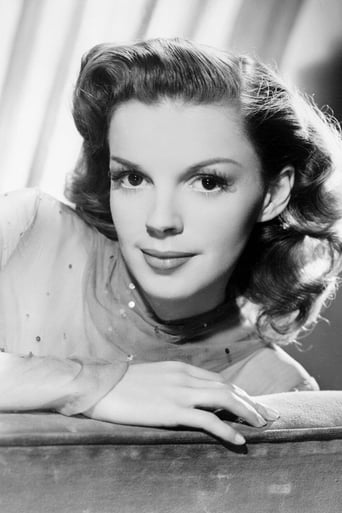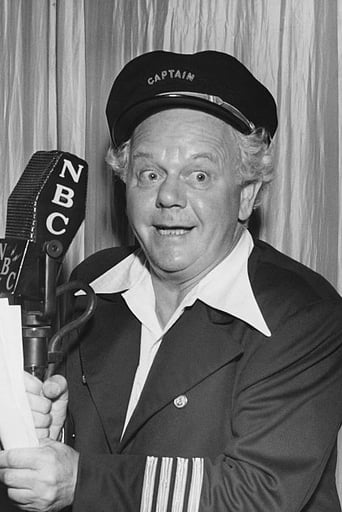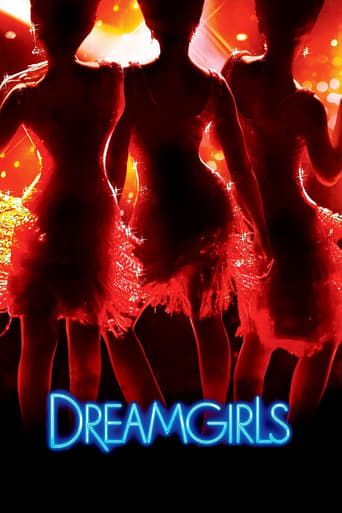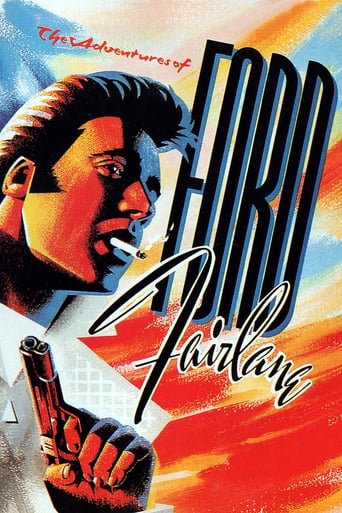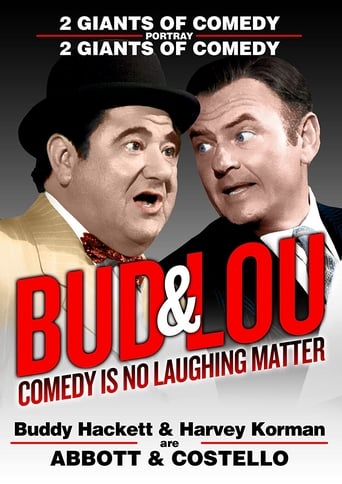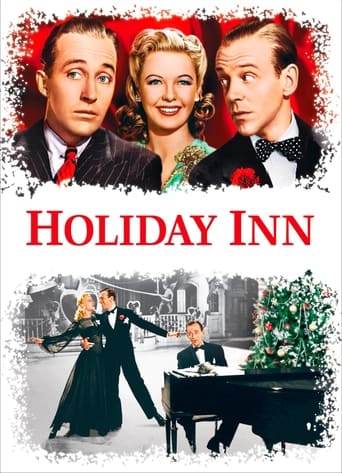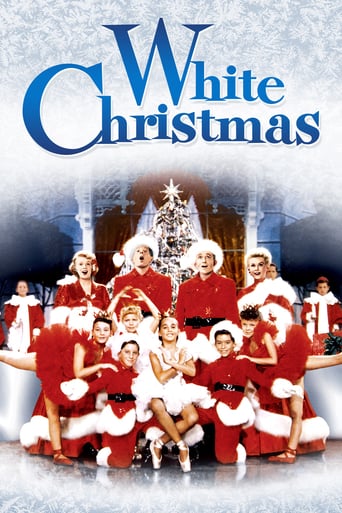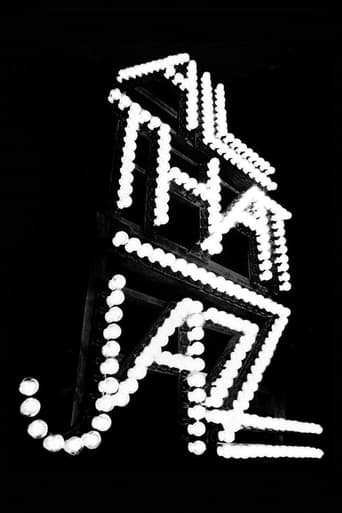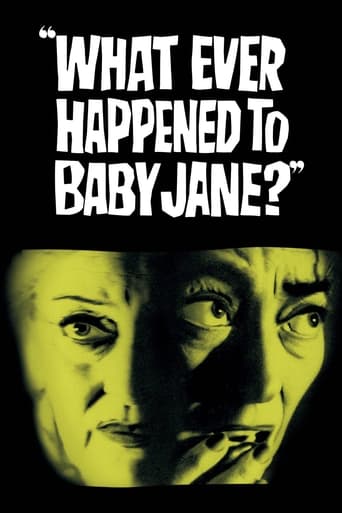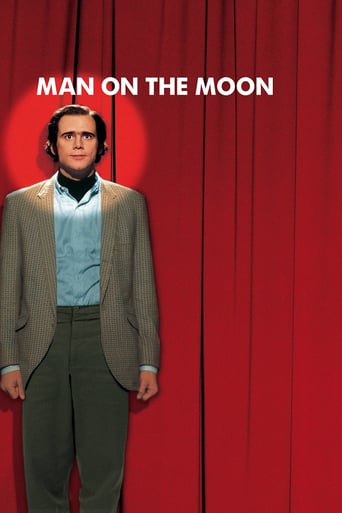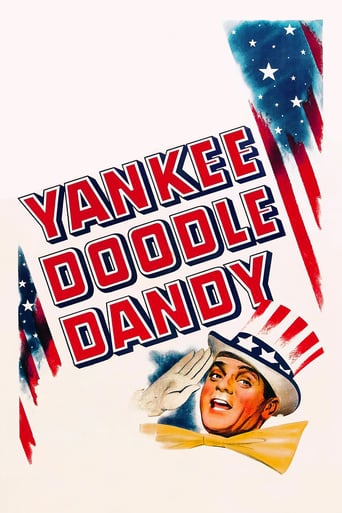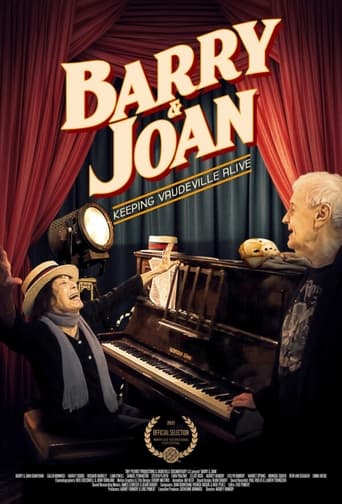Babes in Arms (1939)
Mickey Moran, son of two vaudeville veterans, decides to put up his own vaudeville show with his girlfriend Patsy Barton. But child actress Rosalie wants to make a comeback and replace Patsy both professionally and as Mickey's girl.
Watch Trailer
Cast


Similar titles
Reviews
The story for this film is that Mickey Moran (Mickey Rooney) and Patsy Barton (Judy Garland) are aspiring entertainers and the children of vaudeville performers. Vaudeville has lost its popularity do to movies! Mickey and Patsy's parents are are trying bringback Vaudeville but they are failing . Now Mickey and Patsy now decide to produce their own show in a bid to reach their dreams of stage stardom and save their homes and not end up in a work camp!.I am not sure if this the first movie that has the plot of "Let's Save the ______" by putting on a show. Now the best musical number is at the begging of the film and its the "Good Morning" number. What is great about this number is that is just "Judy" and "Mickey". No fireworks or special effects. ITs two very talented people and a piano. Other numbers in this film range only from "Barely Tolerable" to "Awful". Worth watching once. Funny thing is that this film made more money (At The Time) than "The Wizard of Oz"
A Metro-Goldwyn-Mayer Picture. Copyright 15 September 1939 by Loew's Inc. New York opening at the Capitol, 19 October 1939. U.S. release: 13 October 1939. 10 reels. 97 minutes.SYNOPSIS: Young Mickey Rooney and his kiddie pals stage their own musical show.NOTES: Academy Award to Judy Garland "for her outstanding performance as a screen juvenile in The Wizard of Oz and Babes in Arms".Also nominated for Best Actor, Mickey Rooney (lost to Robert Donat in Goodbye, Mr Chips); Best Adapted Music Score, Roger Edens and George E. Stoll (defeated by Stagecoach).Shooting from 12 April 1939 to 18 July 1939 with one day of re-takes on 1 August 1939. Negative cost: $748,000. Initial domestic gross: $3,335,000.Arthur Freed's first film as "full" producer. Busby Berkeley's first "full" movie for MGM.COMMENT: Babes In Arms represents some of the best and some of the worst features of the MGM musical. On the one hand, it is played with tremendous zest and the direction of the songs and musical numbers is both lively and engaging. On the other hand, the plot is a sentimental hand-me-down, the dialogue is riddled with clichés and the characters are the stock types of cornball farce. As usual, production credits are very smooth and although the film is not in color, the budget is lavish compared to the black-and- white musical efforts of Universal and Columbia.
'Babes in Arms' is one of Richard Rodgers and Lorenz Hart's best musicals, and one of their biggest successes, with wonderful songs (some of their best) and a witty script.This film version starring Mickey Rooney and Judy Garland doesn't come up to its level. Although "Lady is a Tramp" is heard in brief instrumental form, the best songs from the musical don't appear and the script does lack the wit and sharpness of the stage show's, instead feeling bland and flimsy. Other flaws are that the story does lack oomph and sometimes drags and the supporting cast are variable, with the best performance coming from a very good Margaret Hamilton, Betty Jaynes and Douglas McPhail sing beautifully.June Preisser and Charles Winniger are terribly annoying however. My biggest complaint however is the minstrel number, there is no denying that it is exuberantly performed but there is a lot to dislike about the number, it is not for the easily offended, it appears randomly, feels out of place, goes on for far too long and has to be up there as one of the most overblown scenes in early film musicals.Flaws aside, there is still a good deal to enjoy in 'Babes in Arms'. While it is a bowdlerisation adaptation-wise, the songs are still of good quality, it was interesting to hear "Good Morning", "Broadway Melody" and "Singin in the Rain", while "You are My Lucky Star" and especially the poignant "I Cried for You" are the standouts. "God's Country" is the sole misfire. The use of pre-existing material and operatic excerpts are also a delight, as are the sumptuous production values and lavish photography. Busby Berkeley's direction is not as imaginative, witty or dazzling as some of his other films, but it doesn't come over heavy-handedly and it has charm and energy, especially the clever staging of the title number.As said, the supporting cast are variable, but it's Mickey Rooney and Judy Garland that make 'Babes in Arms' worth seeing. Their chemistry shines beautifully, his brashness contrasting beautifully with her vulnerability. Rooney's performance does feel excessive and hammy sometimes and when it comes to the Oscar nomination he was nowhere near to the level of the other nominees in my opinion, however the boundless enthusiasm is there as is the charm. Garland is luminous and incredibly touching, her voice is also one that you can listen to for hours and not get enough of.On the whole, has a lot to like, especially Rooney, Garland and their chemistry, but it is patchy too. 6/10 Bethany Cox
Warner Brothers took the Dead End Kids and taught them the law. MGM simply gave their teen brigade and gave them tap shoes. Those teens are lead by the rambunctious Mickey Rooney and the peppy but vulnerable Judy Garland who sang and danced their way into the hearts of the world with this schmaltzy but energetic musical. Loosely based upon the 1937 Broadway hit, it lacks many of the original Rodgers and Hart songs in favor of an original score by Roger Edens. The basic plot remains concerning the children of traveling vaudevillians who decide to put on their own show in order to avoid reform school. In the process, buddies Garland and Rooney discover adolescent love in spite of his distraction by a perky former child star. The duo's real life starts in vaudeville correlates with their character's, giving it a bit of irony. Rooney received his first Oscar Nomination for this, basically a continuation of what he had already been doing with the Andy Hardy series. The only difference is here, he sings and dances, quite remarkably, yet with all of the incredible performances in 1939, his inclusion really gives me this reaction: ? As for Garland, she gives a truly versatile performance, combining tenderness and spunk, never hamming it up yet winning attention by commanding it, not demanding it. She truly steals your heart when she sings "I Cried for You", a solo equal in power to Over the Rainbow from the same year's "The Wizard of Oz". In an odd historical note, Garland was not nominated for an Oscar for either film, although a supporting performance by Greer Garson in "Goodbye Mr. Chips" was.Musically, only the title song and "Where or When" remain from the stage show which is on rare occasions still revived. A studio cast album shows that the cut songs deserved better recognition than they got here. Obviously, Garland didn't get to sing the show's most famous song, "The Lady is a Tramp" which is still heard as background music without the racy lyrics. Lena Horne did perform it in the Rodgers and Hart bio-pic, Words and Music. The title number is a highlight, although in retrospect, the group seems self serving, unrealistic and destructive in starting a bonfire. The over-stuffed minstrel show has raised eyebrows with its black-face segments, while the patriotic finale is like something you'd never see on Broadway, let alone in a small-town barn. Elements of both numbers are very dated. The constant close-ups of diaper clad tots may make you gag after a few seconds. Garland and Rooney are a fine team and certainly share much chemistry. Douglas McPhail and Betty Jaynes provide noble support, while June Preisser is the Kristen Chenoweth of her era. Guy Kibbee is a kindly judge and Margaret Hamilton is a well- meaning town matron who only a few months later would taunt Judy once again, albeit in green make-up. Busby Berkeley takes the elaborate choreography and military like drill marching but lacks the camp of earlier musicals and a later banana clad Carmen Miranda.

